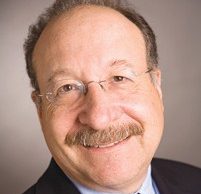
Henry Dubroff
Two of the smartest journalists I know are Thomas J. Friedman of the New York Times and Fareed Zakaria of CNN.
When they reach the same conclusion about Donald Trump, the Russians and his tax returns, I’m pretty confident they’re on to something.
That’s why I’ll add this newspaper’s voice to those calling for President Trump to release his tax returns and explain why his staff had so many conversations with the Russians before and after the November election.
As Friedman wrote in his Feb. 15 column, something is just not right when the president is willing to call out Meryl Streep or Nordstrom on Twitter over personal slights, but is not willing to tell the Russians to keep their mitts off of our democracy. Or when the president waits weeks to tell his vice president about National Security
Advisor Michael Flynn’s lies, which caused the veep to mislead America on CBS.
Because we don’t really know what Trump’s staff told the Russians and because we don’t really know anything about Trump’s finances, all we can do is conjecture. But Zakaria makes the point that until we do know what’s in the returns, the question about what sort of leverage Russian President Vladimir Putin might have over Trump remains open for discussion.
The resignation of Flynn may temporarily move the problem of Trump and the Russians off the front page, but it likely will fester until there is a full explanation of what’s going on.
And, thanks to the First Amendment, it’s likely there will be an explanation — whether via hearings before the Congress or leaks from civil servants who think the public deserves to know the truth, or, my personal preference, a bipartisan commission, like the one that investigated the Sept. 11, 2001 attacks, that looks into Russia’s involvement in America’s presidential election.
Last summer, I spent a few days driving around rural Virginia with a stop at Montpelier, the plantation where James and Dolly Madison lived and worked.
There, in a dark, upstairs room surrounded by histories of all the major governments, Madison came up with the system of checks and balances that formed the blueprint for the Constitution. The Bill of Rights, with its protections for the press and religious freedom, would soon follow.
The Founding Fathers wanted a system that would insulate the fledgling American government from foreign influences — particularly the great powers of the day, Great Britain and France. And they saw the press as a check on any branch of government accumulating too much power in secret.
Our open society provides for news feeds like Twitter, where the president can speak directly and unfiltered. It’s messy and a bit crazy at times but it’s there for all to see.
Which brings us to the point of this column. Yes, the president has broad authority to set foreign policy and if he wants to tilt toward the Russians and away from the Chinese, that’s his prerogative. And Trump, to his credit, has used his authority to begin chipping away at regulations that have hamstrung the economy and seemed like executive overreach.
But Trump doesn’t have the ability to silence his critics like Putin or the Chinese, where a “Great Firewall” limits the amount of information they can get from the West online. He can’t bump off or jail his critics the way Putin dispatches political rivals or thought leaders whose views he doesn’t like.
The First Amendment is a big part of the reason why we will likely get to the bottom of what Flynn did or did not promise the Russians — and what financial interests might be driving Trump’s affection for the Putin regime.
Until that happens, it’s hard to justify a U-turn for American policy after 70 years of confronting Russian ambition on Europe’s frontier.
• Reach Editor Henry Dubroff at hdubroff@pacbiztimes.com.






 Print
Print Email
Email
















